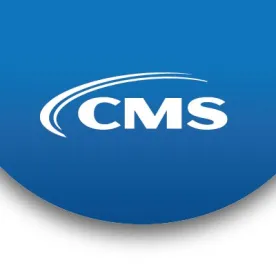The Centers for Medicare and Medicaid Services (CMS) recently released QSO-19-20-CLIA, “Revisions to State Operations Manual (SOM) Chapter 6 – Special Procedures for Laboratories.” CMS describes the release as a “comprehensive revision” to laboratory policies and procedures, as the previous version had not been updated in almost 10 years.
It is worth noting that the revisions, in many instances, do not incorporate input solicited from the public in recent years or recommendations from the Clinical Laboratory Improvement Advisory Committee (CLIAC) and are in direct conflict with many comments. We understand that CMS is still reviewing those comments, which suggests additional revisions may be forthcoming. Nevertheless, the SOM revisions are substantial, and it is worthwhile for laboratory administrators and management to review them in full. The revisions are immediately effective upon release, but many of the revisions were made to reflect CMS policies that were already applied in practice.
The revisions relate to a wide array of topics including certification, proficiency testing, personnel qualifications, and sanctions. Highlights include the following:
-
Primary Source Verification. Section 6006.7 and 6116.4 are revised to include the ability to use reports generated by “primary source verification (PSV)” companies as evidence of meeting CLIA personnel qualifications. However, CMS stresses that “[n]ot all personnel qualifications will be verifiable by a PSV company.” (emphasis in original). Also, CMS declines to issue standards applicable to PSV companies, placing the burden on laboratories to assess the services offered by PSV companies.
— PSV “is the process of confirming an applicant’s credentials by verifying that a degree, certificate, or diploma was received; that licenses were granted; and, by confirming reported work history, such as names and locations, dates, and positions held. Verifications are obtained either directly from an institution, former employers, or their authorized agents.”
-
Personnel Requirements (Nursing Degree). Section 6116.4 is added to provide that “[a] bachelor’s degree in nursing (BSN) meets the requirement of having earned a bachelor’s degree in a biological science for high complexity testing personnel. . . . [and] [a]n associate’s degree in nursing meets the requirement of having earned an associate’s degree in a biological science for moderate complexity testing.”
— Recent comments to CMS from laboratory community members strongly opposed this policy of considering a BSN to be a biological science degree. Further consideration of the issue by CMS seems likely.
— We also note that “CLIA surveyors do not accept nursing licenses as evidence of compliance” with personnel requirements. CMS requires the laboratory maintain a PSV report verifying the type of degree earned, a diploma showing the type of degree earned, or transcripts as evidence.
-
Immediate Jeopardy. Section 6120.1 is revised to provide additional information regarding immediate jeopardy determinations. The three key elements of immediate jeopardy, it explains, are noncompliance with (1) “one or more federal health, safety, and/or quality regulations,” (2) “serious adverse outcome or likely serious adverse outcome” resulting from noncompliance, and (3) need for immediate action. Further, “[t]he number of deficiencies does not necessarily relate to whether or not a Condition is found out of compliance, but rather the impact or potential impact of the deficiency(ies) has (have) on the quality of laboratory services and the results reported.” The revisions cite the recently-revised Appendix Q – Core Guidelines for Determining Immediate Jeopardy for further information.
-
Civil Money Penalties. Section 6280.2.2 is revised to reflect the Federal Civil Penalties Inflation Adjustment Act Improvements Act of 2015, which adjusts the amount for civil monetary penalties (CMPs) at each level annually. “Once the effective date of new CMP levels occurs, the new amounts shall be used to impose any CMPs, regardless of when noncompliance is identified.” In other words, if a violation occurs before the CMP level is adjusted upward for inflation, but the CMP is imposed after the adjustment is in effect, the penalty will be calculated using the higher level.
-
Certificate of Waiver. Section 6061 is revised to clarify that laboratories holding a Certificate of Waiver are not exempt from the ban against referral of proficiency testing sample and other penalties when proficiency testing referral has been substantiated.
— Note that laboratories with Certificates of Waiver are not required to conduct proficiency testing for waived tests; however, some will enroll in proficiency testing for educational benefits and to assure the quality of the testing they provide.
— Recent comments to CMS had expressed concern that applying sanctions to laboratories with Certificates of Waiver would discourage their voluntary enrollment in proficiency testing.
-
Proficiency Testing. Section 6276.2 sets out three categories of proficiency testing referrals, as well as mandatory and discretionary penalties for each referral type.
— Section 6276.2.4 sets out a new carve out “[i]f CMS determines that a proficiency testing sample was referred to another laboratory for analysis, but the requested testing was limited to reflex, distributive or confirmatory testing” under specified circumstances. In these cases, “CMS will consider the referral improper, but not intentional” and may impose alternative sanctions.
— A Category 1 improper referral imposes, among other penalties, a prohibition on an owner/operator from involvement with another laboratory for at least one year. However, the owner may be exempt from the ban “if, after review, CMS finds that there is no evidence that patients would be put at risk by [the] owner being exempted from the ban, that the owner was not complicit in the PT referral, and that the laboratory has either not received PT samples from another laboratory in 2 previous survey cycles, or, if it did, it reported the receipt to CMS.”
— Finally, any CLIA-certified laboratory that receives a proficiency testing sample from another laboratory for testing must notify CMS.
-
Competency Assessment. No change was made with respect to the ability of general supervisors with an associate’s degrees to perform a competency assessment for moderate complexity testing personnel in laboratories that perform both moderate and high complexity testing. Currently, in contrast, general supervisors with an associate’s degrees may perform a competency assessment on high complexity testing personnel.




 />i
/>i

